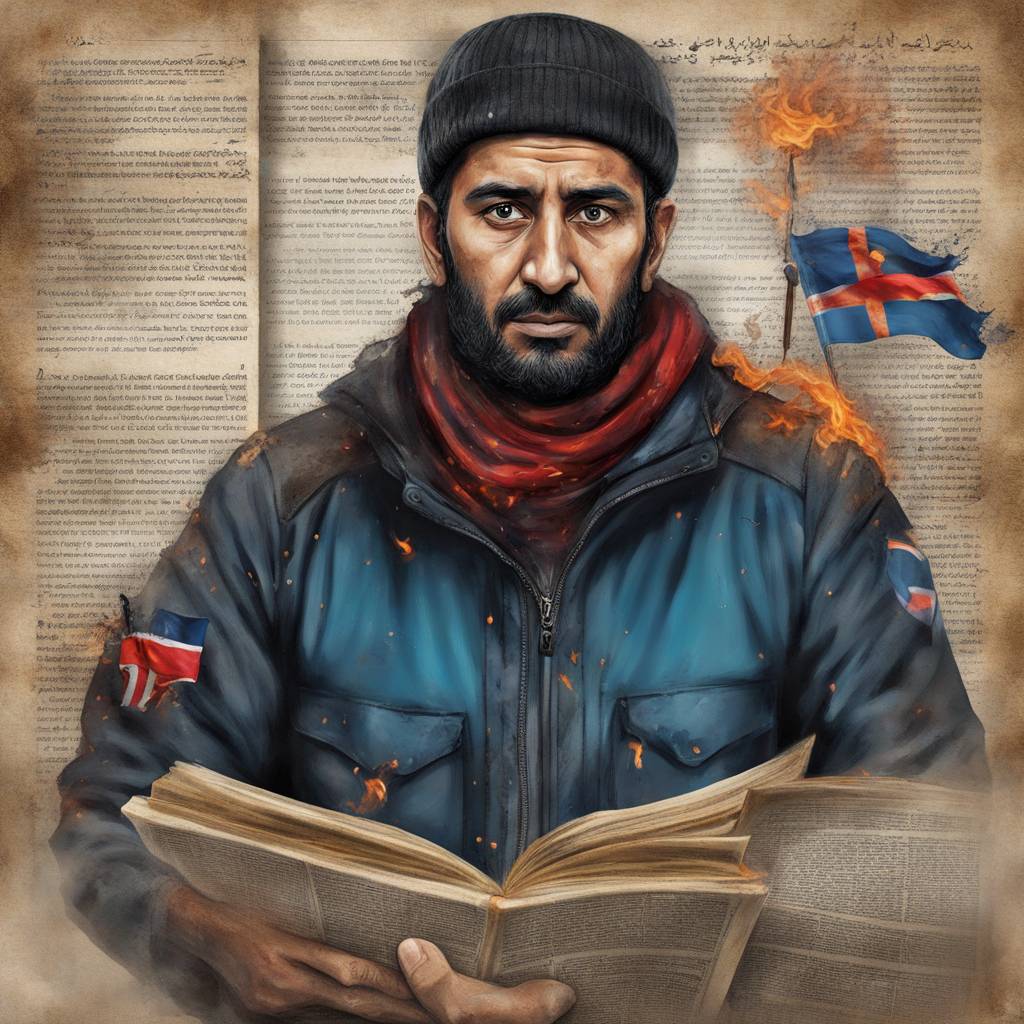An Iraqi man named Salwan Momika, 37, who has gained notoriety for carrying out multiple Quran burnings in Sweden, revealed his plans to seek asylum in neighboring Norway after facing a deportation order from Swedish authorities. Videos of Momika’s provocative Quran burnings received worldwide attention and sparked anger and protests in many Muslim-majority countries. His actions have led to investigations by Swedish authorities for incitement against ethnic groups in Sweden. Momika’s activities were even cited as one of the reasons for delays in Sweden’s NATO membership, as his actions drew the attention of NATO member countries like Turkey, which vetoed Sweden’s bid to join the alliance.
Despite having his residence permit revoked in October by Sweden’s migration authorities due to providing incorrect information on his application, Momika’s deportation has been delayed for security reasons. Momika believes that his life would be in danger if he were to be returned to Iraq. Swedish media reported that he was granted a residence permit in 2021. In light of the deportation decision last year, Momika was given a new temporary residence permit that expires on April 16. He expressed his disillusionment with Sweden, stating that the country does not welcome or respect him, which is why he is seeking asylum in Norway. Momika claimed he had already entered Norway and was making his way to the capital, Oslo, although there was no immediate comment from Norwegian authorities.
The controversy surrounding Salwan Momika’s Quran burnings has resulted in tensions and unrest in various locations where his actions were publicized. The videos of Momika desecrating the sacred book of Islam have inflamed sentiments in Muslim communities and triggered protests in response to the perceived disrespect shown by Momika towards a religious text. As a result of the widespread outrage and criticism directed at him, Momika has come under investigation by Swedish authorities for alleged incitement against ethnic groups. His actions have had far-reaching consequences, including disrupting Sweden’s NATO membership process and straining diplomatic relations with Muslim-majority countries.
Momika’s decision to seek asylum in Norway signifies his belief that he will receive greater acceptance and respect in the neighboring country compared to Sweden. His assertion that Sweden only grants asylum to terrorists while expelling philosophers and thinkers like himself reflects his dissatisfaction with the treatment he has received in Sweden. Momika’s choice to flee to Norway highlights his fears for his safety and well-being if he were to return to Iraq, his country of origin. The ongoing delays in his deportation and the expiration of his temporary residence permit indicate the uncertainty surrounding Momika’s legal status and his future prospects in either Sweden or Norway.
The case of Salwan Momika underscores the complexities and challenges faced by asylum seekers and individuals involved in controversial acts that provoke social and political repercussions. Momika’s actions have triggered debates about freedom of expression, religious tolerance, and the limits of permissible speech in democratic societies. The legal and ethical considerations surrounding the treatment of individuals like Momika, who engage in actions deemed offensive or inflammatory, raise questions about the balance between protecting fundamental rights and addressing societal concerns. The outcome of Momika’s asylum request and his ongoing legal battles in Sweden will undoubtedly have broader implications for similar cases and the attitudes towards controversial speech in European countries.
In conclusion, Salwan Momika’s decision to seek asylum in Norway after being ordered to leave Sweden due to his Quran burnings illustrates the intersections of freedom of speech, religious sensitivities, and immigration policies in Europe. The repercussions of his actions have reverberated across borders and raised contentious issues about the boundaries of acceptable behavior in diverse societies. Momika’s quest for asylum underscores the complexities of navigating legal, cultural, and societal norms while seeking refuge from persecution or danger. The resolution of Momika’s case will be closely watched as it has implications for the treatment of individuals engaged in provocative or offensive activities and the rights of asylum seekers in Europe.













